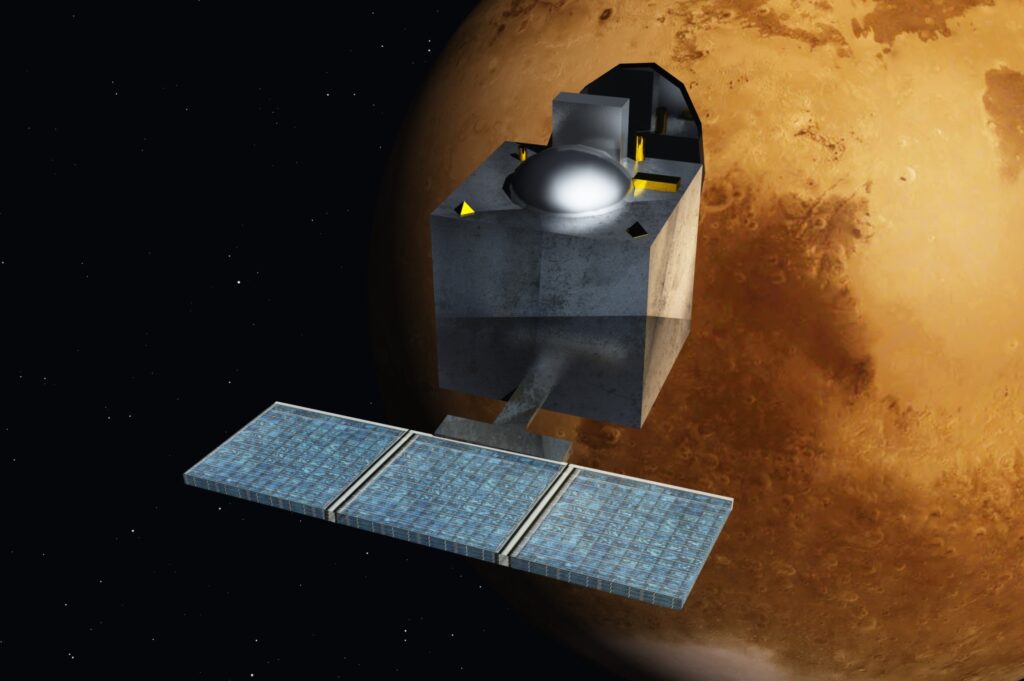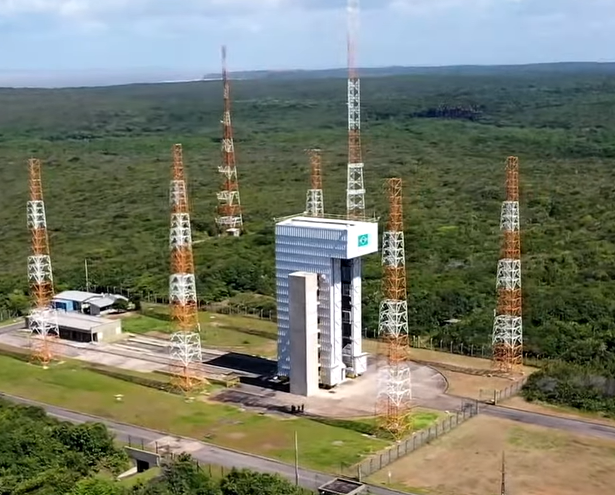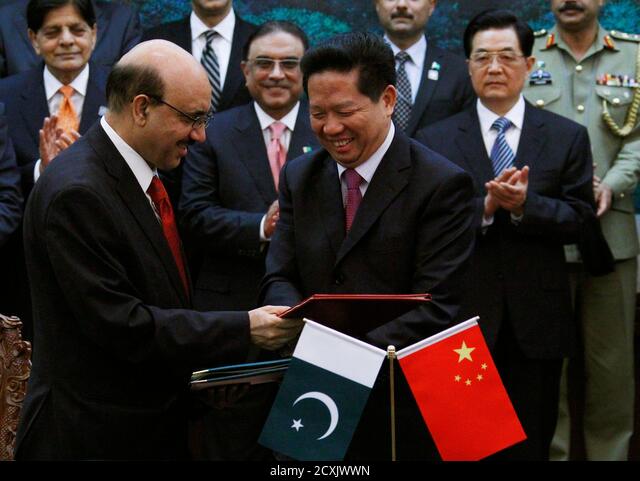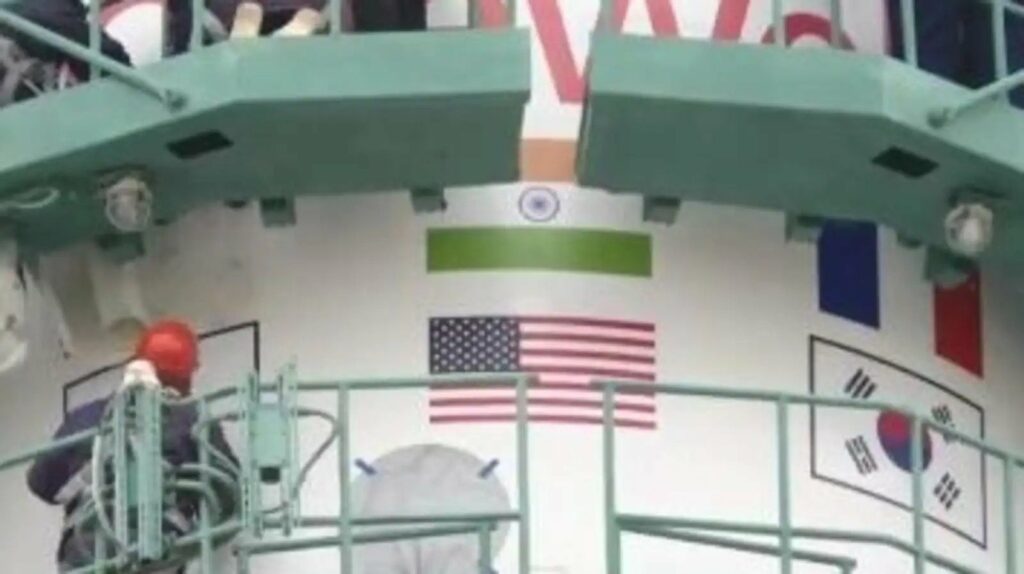Despite all the efforts of the USA, it does not seem possible to create a single worldwide system for space exploration. It was not even possible to reduce it to a confrontation between two systems. Today, dozens of players take part in space politics defending their own interests and building alliances which are sometimes extremely bizarre.

Too many participants
This is the final chapter of a long article. Read the previous parts here: first, second, third, fourth
And all powers mentioned in the previous chapters are only a small part of the states that have their own space ambitions and technologies for their implementation. For example, there is Brazil, which has been trying to launch satellites from its own spaceport for several decades. It is possible that they will also make their space breakthrough in the near future.

There are Indonesia and Malaysia, who have their own satellites and are also keen to build their own spaceports and rockets. There are Australia and New Zealand, which are also about to take independent steps into space. In particular, the first British satellite was launched from the territory of the former. And the latter has an active cosmodrome as well. African states also have their space ambitions.
As for 2022, 77 countries have their own space agencies. 16 of them launch satellites on their own. It is not surprising that one of the primal directions they want to develop is military, and the main opponents are usually their neighbors.
In this situation, space politics tends to turn into chaos, which is quite difficult to navigate. Of course, it can be said that now the situation in space is basically the same as it was decades ago: there is the confrontation between the free world, led by the USA, and authoritarian states, led by China.

In fact, the boundaries of these unions are quite illusory and unstable. For example, there is a kind of Asia-Pacific Space Cooperation Organization. It was created by China, and its main purpose is the development of the BeiDou satellite navigation system, which definitely has military applications. However, it does not include Iran, Russia, and North Korea, whose presence there would be quite expected. Instead, there are fairly neutral Thailand, Peru and even NATO member Turkey. Similarly, the closest ally of the United States, Germany, did not sign the Artemis Accords, which became the epicenter of the confrontation between the United States and the People’s Republic of China in space.
One’s own interests
It is quite easy to understand the reason for such a state of affairs if we remember what started the space race. Space exploration was a matter of prestige for the USSR and the USA. And despite the growing importance of satellites and manned flights for the economy and the military, their own interests in this matter prevail over all alliances.
That is why the division of tasks in a joint project is very common in this field. But countries share technologies extremely rarely. Mostly, they are sold either for very big money, or when there is simply nothing to support an ally.

The matter is that the opportunities that others do not have are the main factor in how many other participants in the space race are ready to cooperate with a country. Countries with the greatest opportunities become centers of unions. But this does not mean that the rest of the participants do everything they are said. Everyone tries to defend their own interests, and they try not to pay attention to the global confrontations. Therefore, animosities and friendships in space are increasingly determined by relations with neighbors on Earth.
An attempt to ban anti-satellite weapons
One of the spheres of space activity where the interests of the leading states can become decisive is the development of anti-satellite weapons. Its testing by Russia in November 2021 and the start of the war in Ukraine forced the USA to act decisively. First, they announced that they were abandoning missiles capable of hitting satellites, and then called on the rest of the world to do the same.
The US proposal has already been supported by its closest allies: Canada, Australia, New Zealand, Japan, even France and Great Britain. But whether it will help to adopt the relevant UN resolution and whether it will be implemented is currently unclear.

It is quite predictable that Russia and China will do everything to prevent it from passing the vote. These countries are definitely not going to give up anti-satellite weapons. But even so, there are many others who are in no rush to support the US proposal. For example, India has not responded to this initiative. Iran and North Korea will almost certainly be opposed. Considering this, the consent of Israel and South Korea also looks doubtful.
Space interests of Ukraine
In such conditions, Ukraine should understand that in terms of creating opportunities for civil or military space activities, it is necessary to rely primarily on its own resources. International cooperation with the leading space powers provides certain opportunities, but in reality these are crumbs from their table.
Success in space in the 21st century is primarily based on the successful construction of a national space ecosystem, where government civilian agencies, the military, and private companies share tasks among themselves. Cosmic alliances must first of all be between these organizations for the implementation of projects that cannot be carried out alone. The experience of other countries shows that simple schemes in this field are not realistic.

And international cooperation should already be a continuation of the domestic policy in the field of space. Given the military aggression of the Russian Federation, space cooperation seems unlikely not only with this country, but also with China. Iran and India are also unlikely to become our close partners in the future.
But cooperation with the rest of the countries is quite capable of bearing fruit. First of all, of course, this concerns the countries that are close to us geographically and have common interests on Earth with our state — Poland, Turkey, Romania, Israel. Cooperation with ESA also looks promising.
Meanwhile nothing forbids also trying to establish friendly relations with more distant Japan, Australia, Malaysia, Brazil. All these countries want to get their own place in outer space. We just need to remember that they all have their own vision of what alliances and confrontations should look like outside of Earth.

